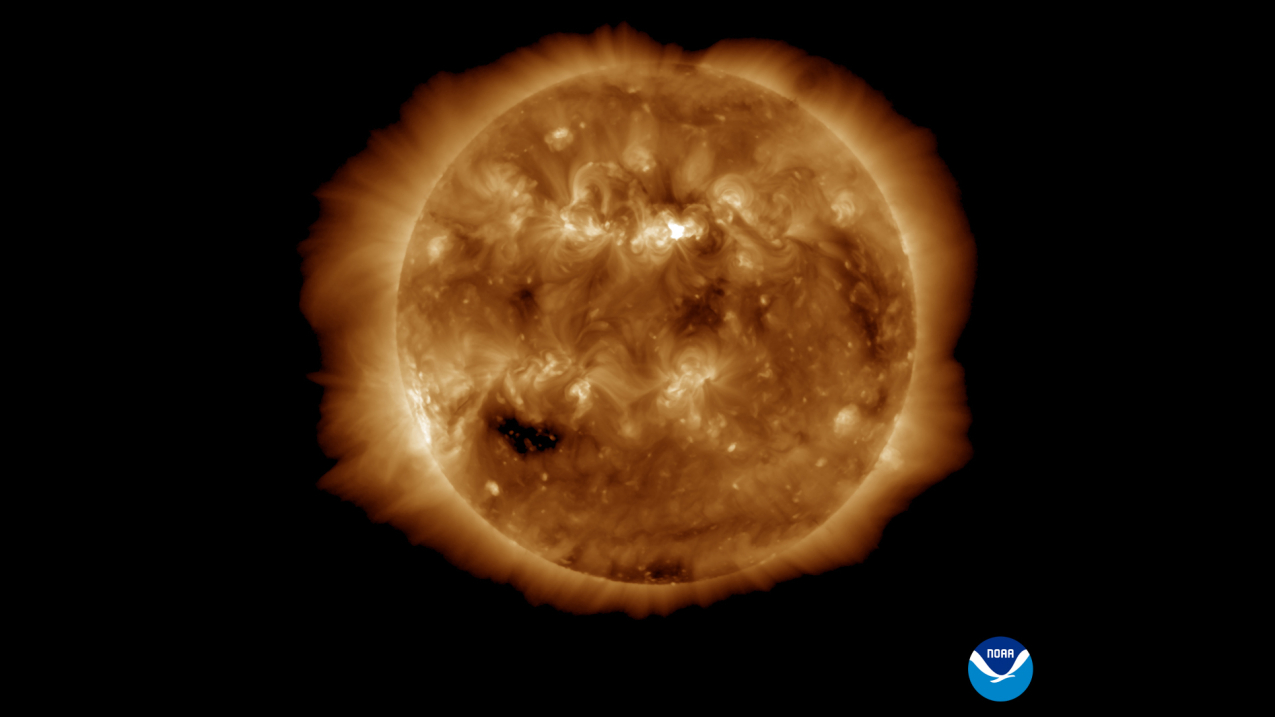Space weather experts available for interviews

NOAA’s GOES-16 satellite captured the eruption, the white area near the top and center of the image, that occurred around 7:29 a.m. EDT on March 28. (Image credit: NOAA)
RESOURCES

RESOURCES

NOAA’s Space Weather Prediction Center (SWPC) — a division of the National Weather Service — is monitoring the Sun and solar winds following two solar flares and Coronal Mass Ejections (CME) that occurred on Monday, March 28. Space weather forecasters predict a strong geomagnetic storm, a G3 on NOAA’s scales, on Thursday, March 31, and have issued a Geomagnetic Storm Watch through April 1.
Additionally, a G1 (Minor) watch is in effect for Wednesday, March 30, for likely effects of the initial CME shock arrival and a G2 (Moderate) watch is in effect for April 1, in anticipation of continuing CME influences.
SWPC forecasters continue to monitor NOAA’s DSCOVR satellite and its real-time solar winds for signs of the arrival and strength of the CME, and will issue any appropriate geomagnetic storm warnings.
Geomagnetic storms can impact infrastructure in near-Earth orbit and on the surface, potentially disrupting communications, the electric power grid, navigation, radio and satellite operations. Impacts to technology from a G3 storm generally remain small, but it can drive the aurora further south from its usual position over the polar region. Auroras for this storm may be visible, if the weather conditions are favorable, as far south as Pennsylvania to Iowa to Oregon and points north. Check NOAA’s latest aurora forecast.
WHAT
Space weather experts available for interviews about the strong geomagnetic storm and impacts on Earth.
WHEN
Tuesday, March 29 through Friday, April 1
NOAA's Space Weather Prediction Center is the official source for space weather forecasts, watches, warnings and alerts. Visit www.spaceweather.gov for updates. The public can subscribe to receive NOAA space weather alerts, warnings, and watch information at pss.swpc.noaa.gov.
Media contacts
Maureen O’Leary, maureen.oleary@noaa.gov; (202) 578-5257
Theo Stein, theo.stein@noaa.gov; (720) 391-0163
Related Features //
RESOURCES





